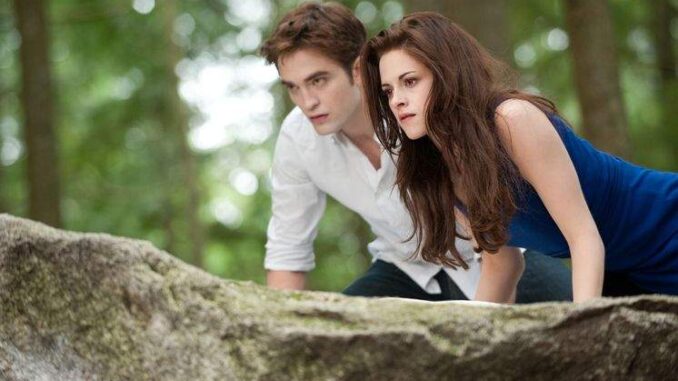
The air around Robert Pattinson once shimmered with the artificial glow of a thousand cinematic suns, an aura meticulously crafted for the consumption of millions. For an entire generation, he was Edward Cullen, the brooding, impossibly beautiful vampire from the Twilight saga, a role that simultaneously launched him into stratospheric fame and threatened to become an indelible, if sparkly, brand. Yet, like a true cinematic alchemist, Pattinson has spent the last decade painstakingly transmuting that golden cage of celebrity into the crucible of critical acclaim, culminating in his stark, grounded portrayal of Batman. His journey is an illustrative testament to the power of deliberate artistic reinvention, all while navigating the quiet evolution of his personal world.
The shadow of Edward Cullen was long and pervasive. When Twilight exploded onto the scene, Pattinson, with his tousled hair and melancholic gaze, became an instant heartthrob, the face of a global phenomenon. The films were a commercial juggernaut, but for Pattinson, they represented a creative confinement. The perception, often unfairly, was that of a teen idol, rather than a serious actor. He felt the weight of being defined by a character whose most defining characteristic was supernatural attractiveness. This period, though immensely successful, was less about artistic exploration and more about surviving the hurricane of fame, a challenge he met with a mix of awkward charm and evident discomfort with the public spotlight.
But even as the Twilight frenzy reached its crescendo, Pattinson began to chart a different course, consciously veering away from the blockbuster machine. This was his cinematic chrysalis, a period of shedding the commercial skin to reveal a more complex, challenging artistic core. His choices were deliberate, often gravitating towards independent films and auteur directors. David Cronenberg's Cosmopolis (2012) was an early, audacious statement, casting him as a disaffected billionaire in a limousine, a twitching, paranoid figure utterly removed from the romantic vampire. This was followed by the stark brutality of The Rover (2014), the mesmerizing psychological depth of The Lighthouse (2019) where he delivered a tour-de-force performance as a deranged lighthouse keeper, and the raw, desperate energy of Good Time (2017), a role that demanded an unflinching commitment to a morally compromised character. These films, often dark, unsettling, and physically demanding, were Pattinson's declaration of intent: he was an actor willing to push boundaries, to inhabit the grittiest corners of human experience, far from the polished veneer of Forks, Washington. Critics, initially skeptical, began to take notice, praising his fearless choices and the depth he brought to these often-unlikable characters. He was, slowly but surely, becoming an actor’s actor.
Then came the bat-signal, piercing the Gotham gloom – a decision that initially bewildered many, and for some, evoked the ghost of sparkly vampires. The announcement of Robert Pattinson as Batman for Matt Reeves’ The Batman (2022) was met with a chorus of skepticism, reminiscent of the initial backlash when Ben Affleck or Michael Keaton were cast. Yet, Pattinson, armed with a decade of indie credibility, approached the iconic role with a singular vision. His Bruce Wayne was not the polished playboy or the stoic warrior; he was a broken, brooding recluse, a detective haunted by trauma, literally bleeding into his cowl. This wasn't a reinvention of Batman for Pattinson, but rather a culmination of his own artistic journey. He brought the psychological complexity honed in his indie roles, the physical commitment, and a palpable sense of internal struggle to a character often defined by external heroics. The Batman was a critical and commercial triumph, cementing Pattinson's status not just as a blockbuster lead, but as a serious actor capable of inhabiting major franchises without being consumed by them. He had mastered the art of balancing artistic integrity with commercial appeal, truly stepping out of one icon's shadow by embracing another, and making it undeniably his own.
Beyond the capes and fangs, Pattinson’s career highlights continue to illustrate his versatility. His role in Christopher Nolan’s Tenet (2020) showcased his ability to blend seamlessly into a complex ensemble blockbuster, proving he could be a vital cog in a grand cinematic machine without losing his distinct presence. His work ethic, his quiet intensity, and his evident passion for the craft have made him a sought-after collaborator for visionaries and established him as one of the most compelling actors of his generation.
And amidst this professional crescendo, Pattinson has diligently guarded his private life, a quiet act of rebellion against the unrelenting public gaze that accompanied his early fame. He has long maintained a low profile regarding his personal relationships, offering glimpses rather than exposés. His long-term relationship with actress and singer Suki Waterhouse has been a discreet constant, a testament to their mutual respect for privacy. The recent news of the birth of their first child in early 2024 offers a poignant, grounded update to his intensely public career. It’s a quiet, profound shift – the fiery public image of Edward, the brooding intensity of Batman, now tempered by the tender, private reality of fatherhood. This personal evolution parallels his professional one: a maturing into a self-possessed individual who has found balance, proving that even under the brightest spotlights, one can cultivate a meaningful, private existence.
From the sparkling vampire to the brooding vigilante, Robert Pattinson's career is a masterclass in shedding expectations and forging one's own path. He navigated the treacherous waters of instant fame, weathered the storm of typecasting, and emerged as an actor of profound depth and undeniable skill. His journey is an illustrative beacon for any artist seeking to define themselves on their own terms, proving that sometimes, the greatest transformation happens not in front of the camera, but within the resolute spirit of the artist himself, quietly building a life of substance alongside a career of brilliance.
